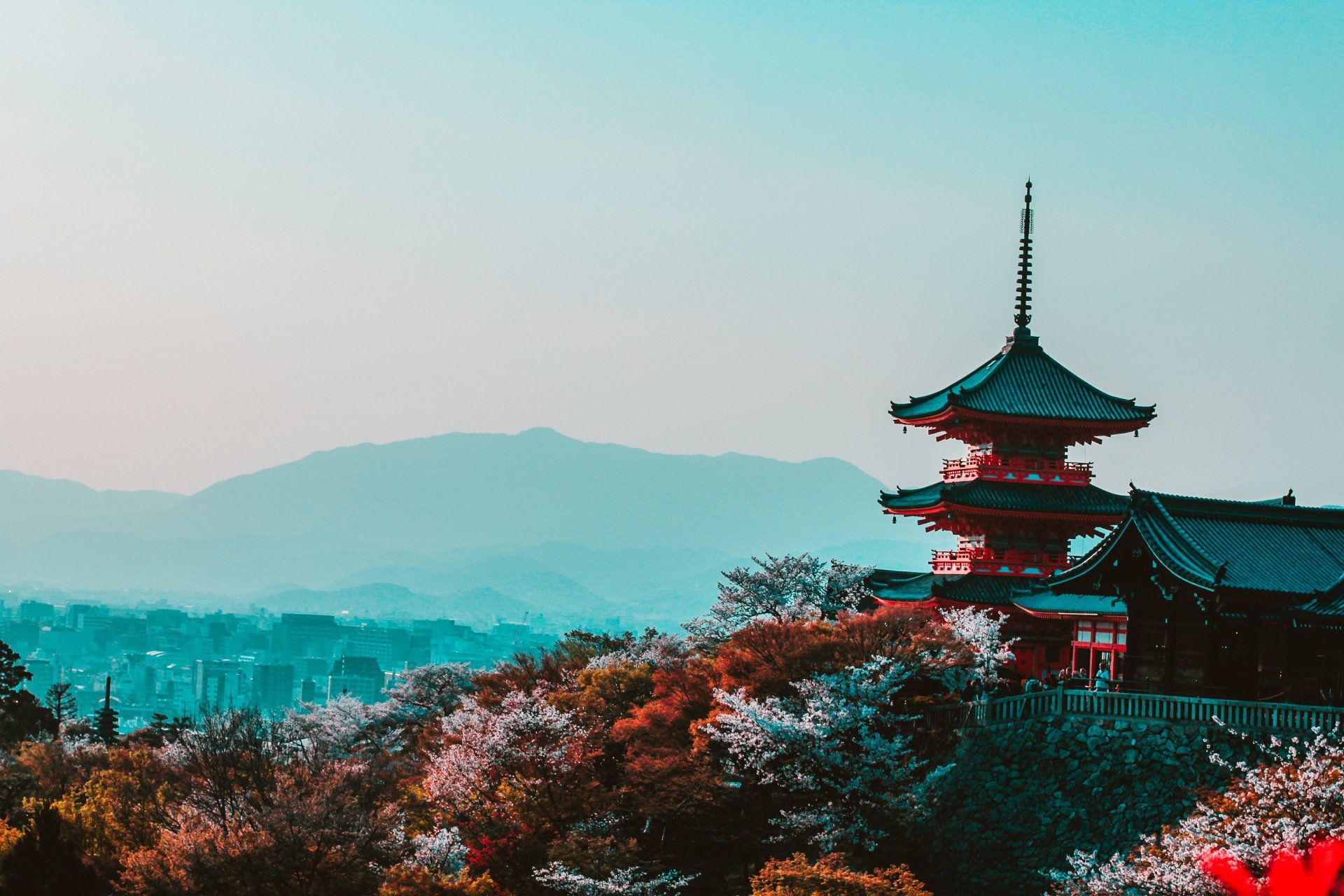Japan
Japan
Japan, an island nation in the Pacific, offers a remarkable blend of ancient tradition and cutting-edge modernity. From the serene temples and blossom-filled gardens that symbolize its rich cultural heritage to the bustling high-tech cities like Tokyo and Osaka, Japan stands as a testament to a society that reveres its past while simultaneously driving towards the future.
The country captivates visitors with its diverse landscapes, from the snow-capped peaks of Hokkaido to the subtropical beaches of Okinawa. Japan's deep artistic roots are visible in its traditional arts like tea ceremonies, calligraphy, and ikebana (flower arranging), which provide a tranquil contrast to the neon-lit skyscrapers and pop culture of its urban environments.
The Japanese people are known for their politeness and hospitality, contributing to the country's reputation as a welcoming destination for tourists. Events such as the cherry blossom festivals in spring and the fiery autumn leaves attract visitors from all corners of the globe, while traditional festivals like Gion Matsuri in Kyoto offer a glimpse into the local customs and history.
Japan, an island nation in the Pacific, offers a remarkable blend of ancient tradition and cutting-edge modernity. From the serene temples and blossom-filled gardens that symbolize its rich cultural heritage to the bustling high-tech cities like Tokyo and Osaka, Japan stands as a testament to a society that reveres its past while simultaneously driving towards the future.
The country captivates visitors with its diverse landscapes, from the snow-capped peaks of Hokkaido to the subtropical beaches of Okinawa. Japan's deep artistic roots are visible in its traditional arts like tea ceremonies, calligraphy, and ikebana (flower arranging), which provide a tranquil contrast to the neon-lit skyscrapers and pop culture of its urban environments.
The Japanese people are known for their politeness and hospitality, contributing to the country's reputation as a welcoming destination for tourists. Events such as the cherry blossom festivals in spring and the fiery autumn leaves attract visitors from all corners of the globe, while traditional festivals like Gion Matsuri in Kyoto offer a glimpse into the local customs and history.

Japan is composed of four main islands—Honshu, Hokkaido, Kyushu, and Shikoku—each offering its own unique attractions and experiences. Honshu is home to Tokyo, Kyoto, and Hiroshima, providing a mix of ultramodern cities and historical landmarks. Hokkaido is famed for its rugged natural beauty and ski resorts, Kyushu is known for its volcanoes and hot springs, and Shikoku offers a more tranquil experience with its traditional pilgrimage routes and unspoiled countryside.
Transportation in Japan is world-renowned for its efficiency and punctuality. The extensive network of shinkansen (bullet trains) makes travelling between major cities both convenient and swift. This connectivity allows travellers to easily explore the diverse regions of Japan, from the urban sprawl of Greater Tokyo to the peaceful retreats in the Japanese Alps.
Cultural etiquette is important in Japan, with customs and manners that may differ significantly from those in Western countries. Respect for tradition is highly valued, as seen in the practice of bowing, removing shoes before entering homes, and the careful presentation of food.
Japan's climate varies greatly from north to south, ranging from the cold temperate zones of Hokkaido with harsh winters to the subtropical climate of Okinawa with mild winters and hot, humid summers. Most of the country, including major cities like Tokyo and Kyoto, experiences four distinct seasons, with a climate that is generally comparable to that of the east coast of the United States.
Spring (March to May) and autumn (September to November) are widely considered the best times to visit Japan. Spring offers the spectacular sight of cherry blossoms, while autumn dazzles with vibrant fall colors. Both seasons feature mild temperatures and less rainfall, providing ideal conditions for sightseeing and outdoor activities. Summer (June to August) can be hot and humid, with the rainy season occurring in early summer (June to mid-July), which might affect travel plans with occasional showers and overcast skies.
Winter (December to February) varies significantly by region. While cities like Tokyo may experience mild winters, regions such as Hokkaido can be very cold with heavy snowfall, ideal for winter sports enthusiasts. Visitors during this season should be prepared for potential transportation disruptions due to snow, especially in northern and mountainous areas.
Currency: Japanese Yen(JPY)
Time Difference: GMT +9 hours
Estimated flight time: Approximately 11-12 hours to Tokyo
Visa: Tourist visa exemption for UK citizens and other nationalities for stays of up to 90 days.
Spoken Language: Japanese is the official language;limited English proficiency outside major tourist areas.
Tipping Culture: Tipping is not customary in Japan and can be seen as rude; service charges are included in most bills.
Our Holiday Destinations
New paragraph
Tokyo
Experience the dynamic heart of Japan in Tokyo, where ancient temples stand alongside towering skyscrapers. Dive into the world's most famous fish market, savor Michelin-starred sushi, or lose yourself in the electric chaos of Akihabara's gadget shops; Tokyo is a city of thrilling contrasts that captivates at every turn.

